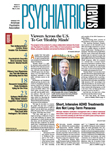Short-term, intensive treatments for children with attention-deficit/hyperactivity disorder (ADHD), whether medication management or behavioral interventions or the combination, may have immediate clinical benefits, but the benefits disappear over time as patients return to usual care in the community, new data from a long-term study show.
The Collaborative Multisite Multi-modal Treatment Study of Children With ADHD, known as the MTA study, began in the 1990s and enrolled 579 children aged 7 to 9 diagnosed with combined-type ADHD. During the initial treatment phase, the study participants were randomized to one of four treatments for 14 months: medication management (primarily with methylphenidate), behavioral interventions, a combination of methylphenidate and behavioral interventions, and usual community care in which the majority of patients received medications from their physicians. After the 14 months of these interventions, all patients went on to community care. The study investigators continued to follow these patients and assessed their outcomes at two, three, six, and eight years after the initial randomization.
Immediately after the 14-month randomized interventions, all four groups had symptom reduction and functional improvement from baseline. Groups receiving intensive medication management, either alone or in combination with behavioral interventions, had significantly larger symptom improvements than the groups receiving behavioral interventions alone or community care.
The combination group had the best outcomes on social skills, parent-child relations, and a few other measures, which were statistically significant compared with other groups, at the end of the 14-month intensive treatments. Both the combination treatment and medication management groups improved significantly more than the behavioral intervention and usual-care groups at the time. However, the advantages of medication management and combination treatment diminished after the interventions stopped, and the differences among the initially randomized groups were no longer significant at the three-year follow-up, or 22 months after the end of the study interventions.
Long-Term Outcomes Converge
At the eight-year follow-up, about three-quarters of the original study participants, now up to age 17, were evaluated. The types of treatment they received eight years before did not significantly predict outcomes, including ADHD symptoms, behavioral and functional assessments, academic performance, and social functioning. The follow-up data were published online in the Journal of the American Academy of Child and Adolescent Psychiatry on March 23.
Despite improvements from baseline, all four groups in their adolescence still had more symptoms, such as hyperactivity and impulsivity, and more functional impairments, such as lower academic performance and behavioral problems, than did their peers of the same age and similar characteristics who had never had ADHD.
Medication use in the previous year was not associated with significantly better functioning at the eight-year assessment. About 20 percent of study participants were not medicated at any of the evaluation points during the study, while 17 percent were still taking stimulants at the eight-year follow-up. Among the patients who were medicated during the intervention phase eight years earlier, 62 percent had stopped taking ADHD medications in subsequent years, which may in part account for the loss of treatment benefits seen in the 14-month analyses.
“These findings are not really surprising,” said Brooke Molina, Ph.D., an associate professor of psychiatry at the University of Pittsburgh Medical Center, in an interview with Psychiatric News. She was the lead author of the eight-year study.
Children Don't Outgrow Symptoms
One of the important messages from the study, she explained, is “the many differences between children with and without ADHD. It used to be believed that these children could outgrow the behavioral and developmental symptoms in their adolescence. The data show that, as a group, they still lag behind [their peers].”
The results do not imply, however, that medications do not work for ADHD patients. “The study demonstrated strong acute effects of the medication treatment in 1999,” Molina noted, referring to the results at the end of the 14-month intervention phase.
“The message is not that treatments do not work.” Rather, the study showed that a one-year intensive therapy in childhood does not make much difference in the long run compared with less-intensive treatment.“ [ADHD] is a chronic disorder that cannot be cured by one-year intensive treatment,” she said. In the context of long-term adverse effects of stimulant use, such as growth suppression, “medications are not the panacea for the long-term health of these children. We need to develop more treatment options with long-term effectiveness and palatability with teens.”
David Fassler, M.D., a child psychiatrist and clinical professor of psychiatry at the University of Vermont School of Medicine, echoed this interpretation. “The study results should be interpreted with caution,” he told Psychiatric News. “Treatment conditions were no longer randomized” in most of the follow-up period, he noted, and the dropout rate at eight years should be taken into consideration. Nonetheless, he noted that the findings are generally consistent with clinical experience.
“For many children with ADHD, treatment will vary over time and often include periods on and off medication, as well as working with the child, parents, and, ideally, the school,” said Fassler, who is also APA's secretary-treasurer. “Ultimately, treatment is most effective when it's closely monitored and individualized to the needs of the child and family.”
In addition, Molina recommended that parents and clinicians regularly reexamine the effects of medication therapy in children with ADHD and carefully consider whether to continue it. “Some children may continue to derive benefits from treatment,” she said. “However, it is extremely important that we do not automatically leave patients on medications for years without reevaluation.”
The MTA study was funded by the National Institute of Mental Health.
An abstract of “MTA at 8 Years: Prospective Follow-up of Children Treated for Combined-Type ADHD in a Multisite Study” is posted at<journals.lww.com/jaacap/Abstract/publishahead/MTA_at_8_Years__Prospective_Follow_up_of_Children.99835.aspx>.▪
